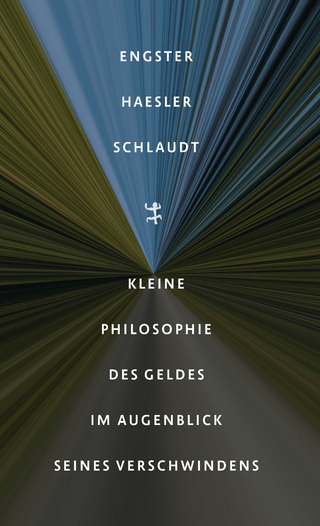
And Was Made Man
Mind, Metaphysics, and Incarnation
Seiten
2025
Oxford University Press (Verlag)
978-0-19-896227-4 (ISBN)
Oxford University Press (Verlag)
978-0-19-896227-4 (ISBN)
- Noch nicht erschienen (ca. März 2025)
- Versandkostenfrei innerhalb Deutschlands
- Auch auf Rechnung
- Verfügbarkeit in der Filiale vor Ort prüfen
- Artikel merken
The idea that God became human in Christ seems paradoxical: surely nothing can be both divine and human? Robin Le Poidevin deploys the resources of contemporary metaphysics to show how even the apparently unchangeable aspects of the divine might be relinquished by God the Son.
The doctrine of the incarnation - that God became human in Christ - is one of the most astonishing propositions ever advanced, and it is at the heart of the Christian faith. It is also a paradoxical one, in that it immediately faces the objection that, since the properties of humanity and divinity are incompatible, nothing can be both divine and human. Can the doctrine be defended against the charge of incoherence? This is the central question of this book. It is a question which has received intense attention in recent philosophy of religion, but the distinctively novel features of this book are twofold. First, it brings a range of debates in contemporary metaphysics - in particular, debates over identity, persistence, composition, embodiment, essence, mind, space, time and necessity - to bear on the central question. Second, it defends a particularly wide-ranging version of the view of the incarnation known as the kenotic model, on which God the Son gave up, in an act of kenosis or self-emptying, certain divine characteristics in order to become human. There are certain properties traditionally ascribed to God, such as being independent of time, being disembodied, existing of necessity, and being the ground of goodness, which it apparently makes no sense to suppose could be given up: they are, it seems, held by God timelessly or eternally. This book proposes a development of the kenotic model in which kenosis could coherently be thought to apply even to these apparently unchangeable aspects of the divine.
The doctrine of the incarnation - that God became human in Christ - is one of the most astonishing propositions ever advanced, and it is at the heart of the Christian faith. It is also a paradoxical one, in that it immediately faces the objection that, since the properties of humanity and divinity are incompatible, nothing can be both divine and human. Can the doctrine be defended against the charge of incoherence? This is the central question of this book. It is a question which has received intense attention in recent philosophy of religion, but the distinctively novel features of this book are twofold. First, it brings a range of debates in contemporary metaphysics - in particular, debates over identity, persistence, composition, embodiment, essence, mind, space, time and necessity - to bear on the central question. Second, it defends a particularly wide-ranging version of the view of the incarnation known as the kenotic model, on which God the Son gave up, in an act of kenosis or self-emptying, certain divine characteristics in order to become human. There are certain properties traditionally ascribed to God, such as being independent of time, being disembodied, existing of necessity, and being the ground of goodness, which it apparently makes no sense to suppose could be given up: they are, it seems, held by God timelessly or eternally. This book proposes a development of the kenotic model in which kenosis could coherently be thought to apply even to these apparently unchangeable aspects of the divine.
Robin Le Poidevin is Professor of Metaphysics at the University of Leeds, where he has taught since 1989. He read Philosophy and Psychology at Oriel College, Oxford, and took his PhD at Emmanuel College, Cambridge. He was the 2007 Stanton Lecturer in Philosophy of Religion at the University of Cambridge, and the 2012 Alan Richardson Fellow in Theology at the University of Durham. He was co-editor of the Oxford Readings in Philosophy volume, The Philosophy of Time, and of the Routledge Companion to Metaphysics, and from 2010 to 2015 was Editor of Religious Studies.
| Erscheint lt. Verlag | 1.3.2025 |
|---|---|
| Verlagsort | Oxford |
| Sprache | englisch |
| Maße | 156 x 234 mm |
| Themenwelt | Geisteswissenschaften ► Philosophie ► Metaphysik / Ontologie |
| Geisteswissenschaften ► Religion / Theologie | |
| ISBN-10 | 0-19-896227-4 / 0198962274 |
| ISBN-13 | 978-0-19-896227-4 / 9780198962274 |
| Zustand | Neuware |
| Haben Sie eine Frage zum Produkt? |
Mehr entdecken
aus dem Bereich
aus dem Bereich
Buch | Hardcover (2024)
Matthes & Seitz (Verlag)
28,00 €


